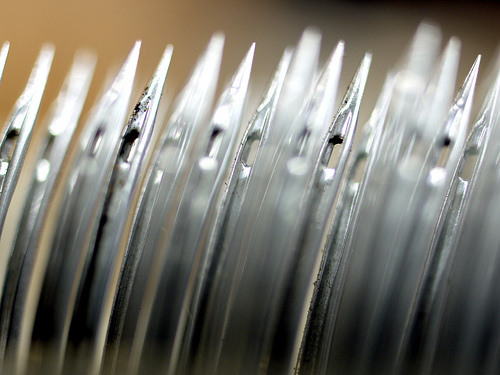FWP:
This verse is a fraternal twin of {87,6}, although the greater abstraction of its second line-- in this one, no Other with his cynical or naive eye-- seems to make it slightly less excruciatingly physical. But we're back at the old 'pleasure of pain' paradox, around which so many ghazal verses revolve.
The second line plays neatly with the possibilities of pās , seconded by the ambiguities of the wonderfully versatile little postposition se . Thus paas-e dard se ;Gaafil honaa can mean 'to be heedless of the consideration due to pain' (2a): that is, not to treat pain with all the respect/attention it deserves (in this case, a respect shown by seeking out every possible kind of it). Or the phrase can mean 'to be heedless, from regard for pain' (2b): that is, to neglect his duty as a lover, because of excessive concern about pain (in this case, by having his wound sewn up, which of course is a dubious or even improper act for a lover).
Bekhud Dihlavi tries to read 'heedless' [ġhāfil]
as referring to a state of mystical trance that the lover goes into while
the wound is being sewed up. This is really stretching the meaning of ġhāfil
a bit too far, I think.

Nazm:
In place of mat̤lūb the author has used mat̤lab , from the [metrical] requirement of the verse. (192)
== Nazm page 192